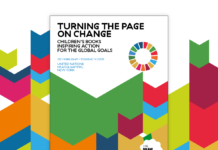On 15 June, the Stop Hate for Profit coalition was launched by civil rights groups such as the NAACP and the Anti-Defamation League. The stated goal of the alliance is to have Facebook look at the role it plays in society. At first, the coalition was unable to convince advertisers to relook or stop their ads on Facebook in July.
The change and momentum built up fast. By the 1st of July, over 400 companies had signed up to stop advertising on the social network, including Adidas, Ford, and Lego. The protest is about how FB handles hate speech and other harmful content. It is not specifically about how it has allowed firms like Cambridge Analytica to target users for political campaigns in favor of Brexit or the 2016 US presidential election in favor of Donald Trump.
Dunkin’ Donuts, retailer Target, and automaker Volkwagen also joined the boycott. “Hate and dangerous online misinformation should not go unchecked,” said the Volkswagen Group of America. “We expect our advertising partners to reflect our values, and Volkswagen — as well as other companies — must hold them to the same standards we demand of ourselves.”
Of course, no mention was made of Volkswagen’s customers and the public being tricked by the disinformation of its pollution cheat system installed on its engines for several years and for which it has been fined by the courts in several countries including India. Thus, social media used by brands for peer-to-peer reviews and engagement with customers can also be used when boycotted to cleanse one’s sins or virtue signaling.
Other advertisers who withdrew from FB were Chipotle, Clorox, Conagra, Denny’s, HP, Pfizer, Starbucks, and Unilever. Unilever itself was under pressure from the anti-racialism movement over its ‘Fair and Lovely’ face creams that champion whiter complexions or colorism.
Many smaller advertisers also joined the boycott. Meanwhile, Mark Zuckerberg’s pledge to label rule-breaking posts did not stop the wave. Rashad Robinson president of Color of Change one of the several group’s that organized the boycott was quoted by NPR, saying, “Facebook has given [advertisers] no other option because of their failure, time and time again, to address the very real and the very visible problems on their platform.”
Advertising brings Facebook 98% of its revenue, which was nearly US$ 70 billion last year. While the campaign seems to have Facebook CEO Mark Zuckerberg’s attention, many observers say that based on past criticisms, congressional hearings, and apologies, little is likely to change.
FaceBook advertiser ‘revolts’ may just be virtue signaling
Brian Morrissey writes that that “advertiser ‘revolts’ never sway Facebook.” In his article in Digiday, he says that Zuckerberg tends to make misleading public statements and is a serial apologizer. He critiques both Facebook and Google, citing YouTube’s ‘brand safety’ crisis, which led to several advertisers pausing their spending.
“This is why I’m skeptical that this time — no, this time — the advertiser unease with Facebook’s approach to everything from user data to propaganda content will fizzle out,” writes Morrissey. “As has been pointed out, marketers selling fleece vests who make a big show of not advertising on Facebook in July might be virtue signaling rather than taking a principled business stand. Time and again, we have seen Facebook and Google withstand these mini revolts, offering small concessions and fig leafs for advertisers to quietly return. . . There is, of course, a chance this latest advertiser revolt will have legs. History, however, says otherwise.”

















